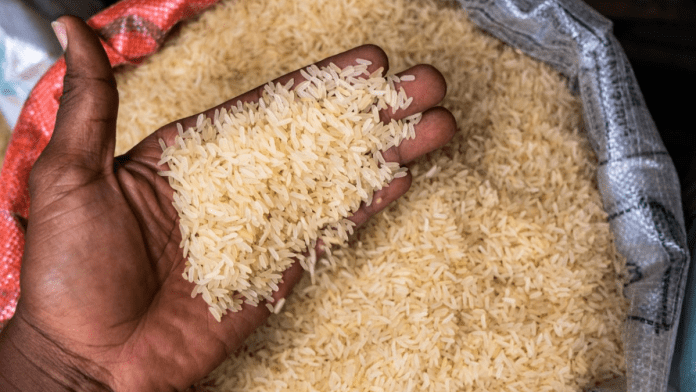News in brief:
– Despite a projected 3.6% increase in paddy rice production, Nigeria anticipates a 32% surge in price for the 2023/2024 crop year due to supply chain disruptions, Indian’s ban on the product and global demand.
– Projections for increased prices in maize, sorghum, and cocoa also raise concerns about food security in Nigeria.
The price of paddy rice in Nigeria is expected to skyrocket by 32% in the upcoming 2023/2024 crop production year, despite a projected 3.6% increase in production output.
This stark disparity between price and production growth stems from a combination of factors. These include the lingering effects of the 2022 floods, supply chain disruptions, and rising global demand, according to AFEX.
The AFEX Wet Season Crop Production Report for 2023 also highlights the impact of the 2022 floods on rice production. It notes that over 100,000 hectares of paddy rice farms were devastated, leading to a decline of over 300,000 metric tonnes in yield.
The absence of serious flooding in 2023 provided some relief, enabling farmers to expand their land under rice cultivation. However, the overall production growth remains insufficient to meet the country’s growing demand for the staple food.
Also, compounding the issue is the ban on paddy rice exports imposed by India, a major rice exporter. The move further tightened global supplies and drove up prices. This export ban, coupled with the lingering effects of the 2022 floods, is expected to push rice prices in Nigeria up by a substantial 32%.
Additionally, the AFEX also provides projections for other key agricultural commodities.
For exapmle, it indicates that maize prices would increase by 5%, sorghum prices by 20%, and cocoa prices by a staggering 70%. These anticipated price hikes reflect how various factors work together, including production levels, demand patterns, and global market conditions.
The projected surge in food prices, particularly rice, raises concerns about food security in Nigeria. These surges continue despite efforts by the Central Bank of Nigeria (CBN) and the government to boost rice production, with the country’s status as Africa’s leading rice producer not translating into lower prices for Nigerians.



